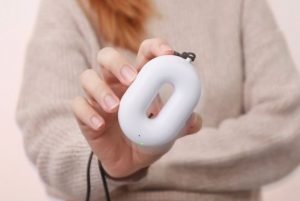Do Air Purifiers Work? – How do air purifiers work to combat the pollutants?
Do Air Purifiers Work?
Air purification is a necessary process to keep your indoor air clean and healthy. Many pollutants are present in the indoor air of homes, offices and other building structures. These pollutants include pet dander, pollen, dust mites, mold spores and other allergens that are inhaled into the lungs. Studies have shown that many people suffer from allergies and breathing problems that can be traced back to contaminated indoor air.
How do air purifiers work to combat the pollutants? When harmful particles are breathed into the lungs, the respiratory system responds by fighting off the foreign matter. Some air purifying systems use chemicals to combat the pollutants. However, carbon based filters are more effective at removing different types of pollutants from the air including: fumes, fungi, molds, dust mites, smoke particles, pollen, dust and animal dander. There are also different types of filters including activated carbon, ionic, organic and ozone. Let’s take a closer look at each type of filter:

Activated Carbon Air Purifiers: As the name implies, activated carbon air purifiers use activated carbon to filter pollutants from the air. The activated carbon is composed of one molecule of carbon and three or more amino groups. When these carbon compounds bind with other molecules, they create an electro-blocking composite that traps pollutants on its surface. This makes the filters less porous and therefore less likely for them to allow airborne pollutants to pass through. Some pollutants, such as sulfur dioxide, do not respond to activated carbon and will pass right through.
Do Air Purifiers Work? – How do air purifiers work to combat the pollutants?
Ionic Air Purifiers: Air ionizers use negatively charged ions to counteract the effects of positive charged ions that are caused by pollutants in the atmosphere. Because of this, they are better capable of removing toxins, especially those found in the fumes we breathe. Many people who have air purifying ionizers in their home swear by them. Other pollutants, such as ammonia and formaldehyde, do not respond to ionic filters.
Organic Air Purifiers: An air Purifier that uses organic particles is made up of finely powdered materials that are bonded together with organic substances such as cotton. There is not enough space for bacteria to hide so these filters are very effective at removing airborne particles such as dust and pollen. It is important to note though that these types of filters cannot trap microorganisms. They just help to filter them out of the air.
Ultraviolet Light Air Purifiers: The ultraviolet light kills pathogens, bacteria, mold spores and other contaminants that are smaller than the wavelength of the ultraviolet light. The best way to explain ultraviolet light is that it works like x-rays. These ultraviolet rays are invisible to humans but they penetrate the skin to damage cellular DNA. As the DNA is damaged it is unable to reproduce and the organism dies. This method works well to remove bacteria, viruses and other pollutants that can cause respiratory illnesses.